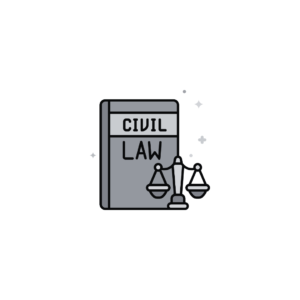Description
Benefits of Pursuing an LLM in Public Law
Comprehensive Understanding of Public Law: An LLM in Public Law provides advanced knowledge in areas such as constitutional law, administrative law, and human rights law, equipping graduates with a deep understanding of the legal frameworks that govern the relationship between individuals and the state.
Specialized Skills: This program hones critical thinking, research, and analytical skills essential for navigating complex legal issues related to governance and public policy.
Career Advancement: The degree can enhance career opportunities in various sectors, including government, non-profits, and international organizations, making graduates more competitive in the job market.
Engagement with Social Issues: Students often explore vital social issues, including civil liberties, environmental justice, and public health law, empowering them to advocate for change in public policy.
Networking Opportunities: Pursuing an LLM allows students to connect with leaders in the field, including academics, practitioners, and fellow students, potentially leading to valuable professional relationships.
Interdisciplinary Approach: Public law often intersects with various fields, including sociology, political science, and international relations, providing a holistic view of legal issues in society.
Curriculum for LLM in Public Law
While curricula can differ by institution, a typical LLM in Public Law might include the following core subjects and electives:
Introduction to Public Law
Overview of fundamental concepts in public law, including the structure of government, separation of powers, and the rule of law.
Constitutional Law
In-depth study of constitutional principles, including rights and liberties, federalism, and judicial review.
Administrative Law
Examination of the regulations governing administrative agencies, including rulemaking, adjudication, and agency accountability.
Human Rights Law
Exploration of international human rights treaties and domestic human rights law, focusing on the protection and enforcement of rights.
Environmental Law
Study of legal frameworks addressing environmental protection and climate change, including regulations and international agreements.
Public International Law
Introduction to international legal standards governing the relationships between states, including treaties, customary international law, and dispute resolution.
Health Law and Policy
Analysis of legal issues related to healthcare access, public health regulations, and health policy.
Civil Liberties
Study of rights related to personal freedom, privacy, and the limitations on government power over individuals.
Social Justice and the Law
Exploration of the role of law in promoting social justice, including issues related to inequality, discrimination, and reform.
Legal Research and Writing
Emphasis on developing strong research and writing skills specific to public law, essential for advocacy and legal scholarship.
Elective Courses
Many programs allow for elective courses in specialized topics such as cyber law, immigration law, or labor law.
Capstone Project or Thesis
Opportunity for students to engage in independent research on a specific issue in public law, contributing original insights to the field.
Workshops and Seminars
Practical workshops focusing on skills such as advocacy, negotiation, and the role of lawyers in public interest work.
Duration of the Program
The duration of an LLM in Public Law typically ranges from one to two years. Full-time students can usually complete the program in one year (requiring around 24 to 30 credit hours), while part-time students often take two years or longer to finish their degree.
Career Opportunities After Completing an LLM in Public Law
Graduates with an LLM in Public Law have various career paths available, including:
Public Interest Lawyer
Advocating for the rights of individuals and communities, often working with non-profit organizations and legal aid clinics.
Government Attorney
Working for federal, state, or local government agencies to provide legal counsel, draft legislation, or represent the government in court.
Human Rights Advocate
Focusing on issues of social justice and human rights, working with NGOs or international organizations to promote and protect rights.
Administrative Law Judge
Serving in quasi-judicial roles, presiding over hearings and making decisions regarding administrative disputes.
Policy Analyst
Researching and analyzing public policy issues, providing recommendations to governmental or non-governmental organizations.
Compliance Officer
Ensuring that organizations comply with legal standards and regulations, particularly in areas such as environmental law or public health.
Legislative Advisor
Advising lawmakers on legal issues, conducting research, and drafting legal documents related to proposed legislation.
Academic Researcher or Lecturer
Teaching public law courses at universities or engaging in research focused on public law topics.
Advocacy Director
Leading campaigns for social or environmental issues in non-profit organizations, coordinating legal strategies and public outreach.
International Organization Official
Working for bodies such as the United Nations or the World Health Organization, focusing on international law and public policy.
Consultant for NGOs
Providing legal expertise and advice to non-governmental organizations on policy-related issues and legal challenges.
Civil Service
Engaging in various roles within public service, including positions in law enforcement, regulatory agencies, or public welfare organizations.
Conclusion
An LLM in Public Law provides graduates with the necessary skills and knowledge to engage deeply with the legal and policy issues affecting society. This degree opens diverse career opportunities in advocacy, government, academia, and beyond. If you have further questions about specific programs, application processes, or the field of public law, feel free to ask!









